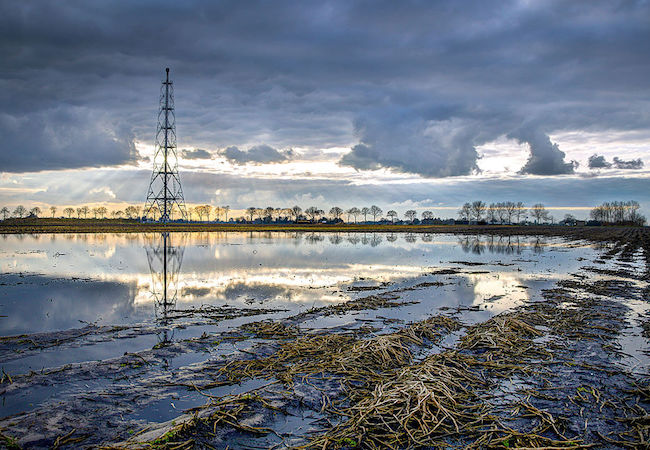
By Damien Dean
It seems straightforward that a country with plethora of natural resources can advance her economy by mobilizing them. But there is no straight causal relation as such. That’s why the resource curse theory, a phenomenon that refers to the fact that countries with bonanza of natural resources economically and politically perform poorer than the less endowed ones, is one of the most contested topics in the academe.
Looking at the economic performance of countries from 1971 to 1989, Jeffrey Sachs and Andrew Warner’s famous research revealed that countries with high ratio of natural resource exports to their gross domestic production (GDP) have lower rates of economic growth. In response to this study, Lederman and Maloney in their seminal book Natural Resources: Neither Curse Nor Destiny suggested that natural resource abundance has no determining impact on the economic development of a country.
But if it is a curse, why does it happen? Economists and political scientists mainly blame two things: corruption and Dutch disease.
For political scientists, almost all the countries the curse befell have, with varying degrees, issues of corruption. Some scholars argue that natural resource abundance does not necessarily hinder economic development if good governance keeps corruption at bay. Yet others contest, claiming oil and mineral abundance and over-reliance on extractive sector does not automatically lead to authoritarianism and thus to corruption. But there is a general agreement that resource abundance is linked, though tenuously, to corruption as it is likely that a plutocratic government will emerge around the lucrative revenues of the resource exported.
For economists, Dutch disease, named after the economic repercussions of the Netherlands’ gas discovery in the 1970s, has the might to explain this oddity. Very briefly, the reliance on only one economic sector cripples other sectors, morphing the national economy into one that is overall less competitive. When the economy of a country becomes excessively reliant on energy exports, like the Netherlands did, the following happens: the sudden surge in gas export attracts a huge influx of foreign currency to the country, which makes the national currency stronger. When the currency becomes too overvalued, the products of other sectors, especially those of manufacture and agriculture, become less competitive (more expensive) compared to the products offered by other countries. Because of this, the less competitive sectors shrivel, hence inflate the unemployment rate in the country.
Not the Quantity but the Diversity
However, the relation between resource abundance and corruption can be enframed from a different perspective. Not the quantity (the abundance) but the lack of diversity in natural/energy resource export of a country may be the biggest determinant of her governance performance. To be clearer, it is very likely that countries that predominantly extract and export one type of natural/energy resource tend to be more corrupt because
- Monopoly over one type of natural/energy resource by a clique is very likely;
- Monopoly over one type of natural/energy resource cripples economic competitiveness;
- Lack of economic competitiveness cripples political competitiveness;
- Lack of political competitiveness combined with economic competitiveness leads to corruption.
Let’s follow the chain of reactions. Because extraction, transportation, infrastructure of different natural/energy resources requires different know-how, technology, and skills, a monopoly by a handful people is very difficult. Conversely, it is easier to monopolize a natural/energy resource if there is only one. Once one type of extractive/energy industry has been monopolized by a clique, it becomes exceedingly difficult for different sectors—including other extractive industries—to thrive, resulting a sharp decrease in economic competitiveness within a nation. When economic competitiveness dissipates in a society, political competitiveness follows it. A financially deprived political opposition just loses its competitive edge. Finally, in an environment where there is no economic or political competitiveness, corruption gains ground.
Of course, the ratio of natural/energy resource export to GDP share to the national economy is equally important. It is expected that the higher ratio of the energy exports to GDP leads to higher level of corruption.
Very ambitious as it might sound, there are even studies that prove such chain of corruption. According to a study, the monopoly over the revenues of natural gas and its infrastructure in Belarus buttressed Alexander Lukashenka’s political reign, allowing him to “[take] advantage of price differentials, transit fees, taxes, and re-exports to generate rents that are then redistributed among domestic actors, enhancing the popularity of the incumbent and the furtherance of the social contract obtaining there.”
Another study finds that energy-rich countries are more reluctant in adopting freedom of information law, and that autocratic regimes are more durable in countries with huge resource wealth.
Except for France, who generates almost 80 % of its electricity by using nuclear power, top electricity exporter countries generating electricity with various methods perform better in the Corruption Perception Index, an index that measure the corruption level of countries. For example, Germany, one of the top net electricity exporter in the world, diversified its electricity production to an extent that renewable energy production methods produced 30% of Germany’s electricity in 2014. Whereas other top electricity exporters like Paraguay, reliant on almost 100% hydropower, China, 61.2 % on coal, Russia, 48% on natural gas perform poor in the same index. In other words, countries that perform badly in the index are overly reliant on one type of electricity generation.
The debate on reasons as to why some countries remain poor and others prosper will stay with us in the foreseeable future. Likewise, the reasons of corruption will continue to befuddle academics and researchers. And, of course, the propositions on this short piece need to pass the hard test of quantitative research. Notwithstanding, it’s worthwhile to look at the ages-old resource curse conundrum from a different perspective.




